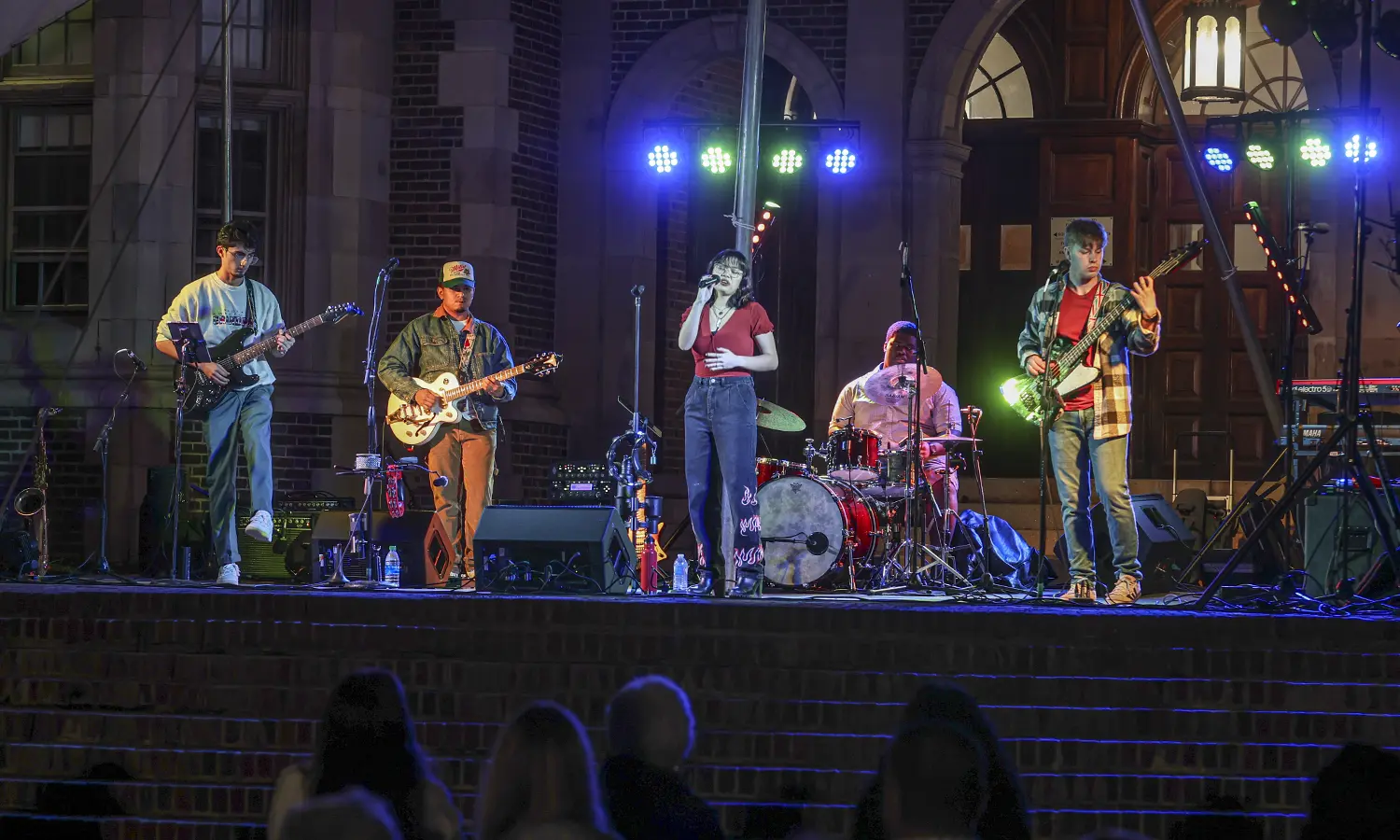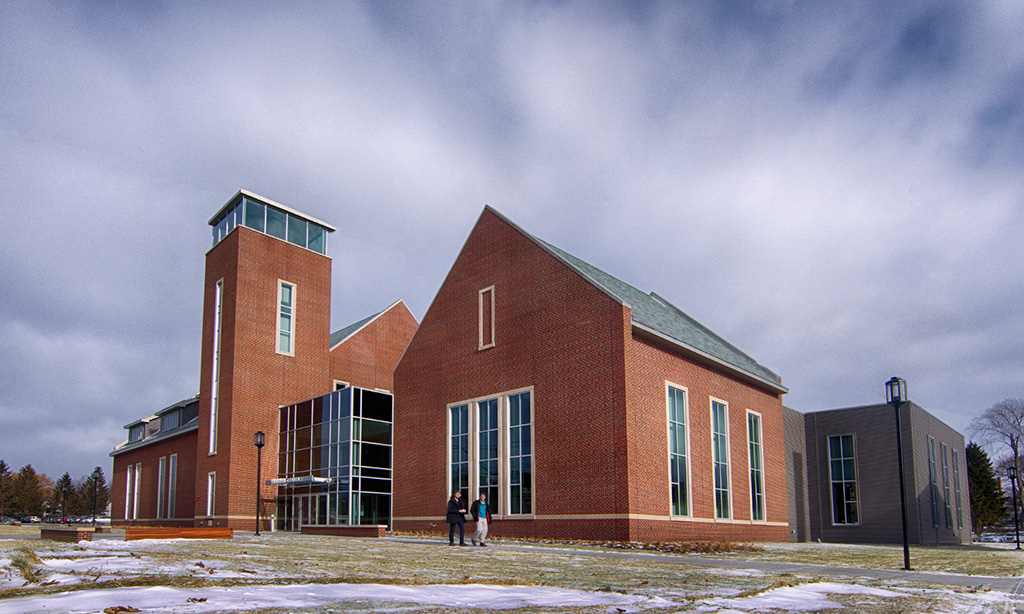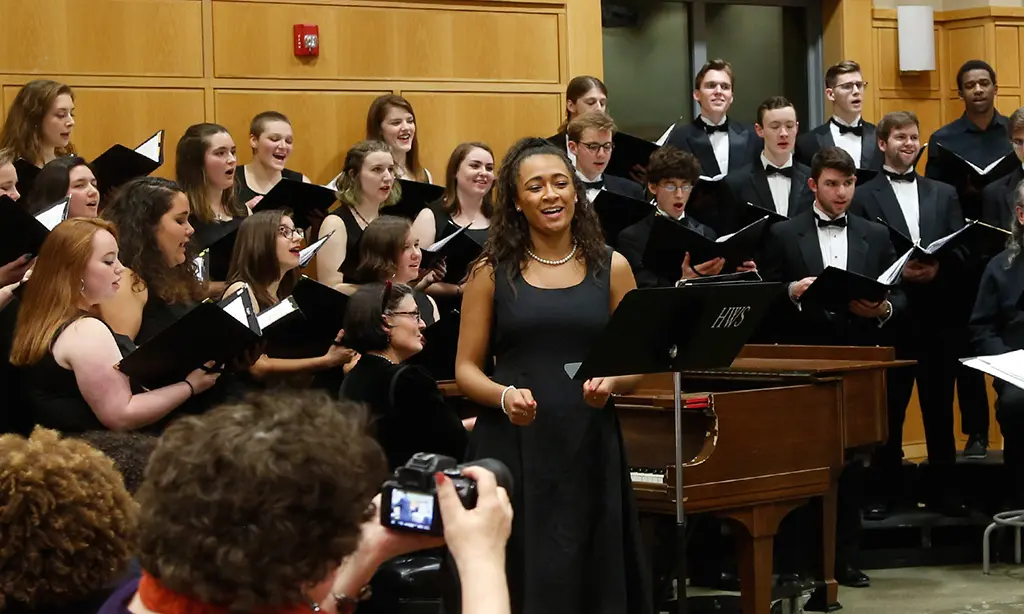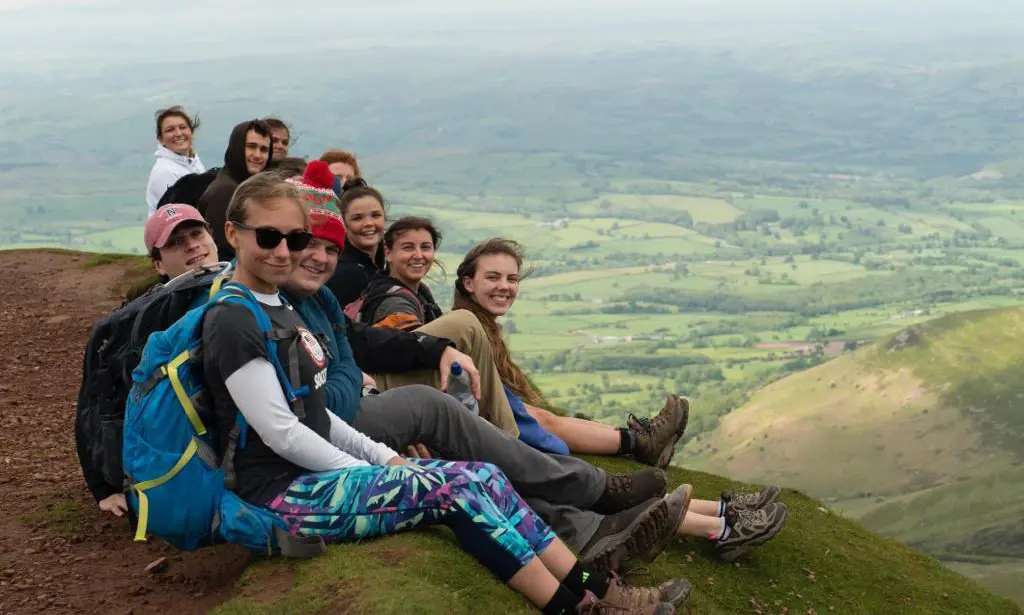Student SpotlightA Passion for Music

Isabel Huelgas '25
Since their meeting in the HWS Jazz Ensemble, Moonflower and its singer, Isabel, have performed at a variety of venues, including the Dove Block, sharing their passion for jazz and live music.

There's something for everyone studying music at Hobart and William Smith. Whether you want to play an instrument in a dynamic ensemble, study the history of hip-hop or develop the foundations for sound engineering, you can. You'll have the freedom to take your passion for music where you want.
Picking and learning a new instrument is easy, too at HWS. You can learn and practice one-on-one with music instructors in a wide variety of instruments from piano, guitar, drums, cello to voice, woodwind instruments and violin. And with many music courses cross-listed with other departments, you'll expand your musical knowledge and its connections across subjects. All this can be done while studying in a state of the art facility with multiple private practice rooms, a student lounge and plenty of space to perform and practice your craft. The skills and knowledge you'll gain studying Music will prepare you for other fields as well such as languages, politics, technology, economics and sciences, meaning your posibilities are endless.

Since their meeting in the HWS Jazz Ensemble, Moonflower and its singer, Isabel, have performed at a variety of venues, including the Dove Block, sharing their passion for jazz and live music.

Whether you’re singing in a choir or taking music lessons, you’ll get to take advantage of all the Music department has to offer in the 65,000 square foot Gearan Center for the Performing Arts. The center includes an 1,800 square foot recital venue for choral performances, an 1,850 square foot venue for orchestra and multiple practice spaces. A student lounge and personal lockers are jut some of the amenities students can take advantage of, along with rentable instruments.
Music students looking to engage more in their work can study and complete Honors and research projects in their chosen topic with the guidance of a faculty member.
Past examples of Honors projects include:

Music isn’t just a subject you learn about in the classroom – you perform it. In the Colleges’ Music Department, you’ll be encouraged to join an ensemble or learn a new instrument one-on-one with an instructor.
At Hobart and William Smith, learning goes beyond textbooks and classrooms. You’ll gain high-impact practical experience that deepens learning and opens doors.
Amplify your Music degree with the skills, knowledge and ethical foundation needed to be a leader in the 21st century. In partnership with the Centennial Center for Leadership, Entrepreneurship and Innovation, our department offers the opportunity to engage in leadership development that culminates in a degree with leadership distinction and provides a competitive edge when applying to internships, jobs and graduate or professional school.
To graduate with leadership distinction, you will complete a series of foundational, action-oriented and reflective milestones within the Music and Leadership curriculum. We encourage you to begin your leadership journey as early as your second semester on campus.
![$intro-image[2]/descendant::img/@alt](/academics/music/images/abroad.webp)
Study music’s role as a social reaction to British domination in Ireland or reggaeton’s cultural influence in Denmark.
Wherever you go, our top-ranked global education program will allow you to apply classroom knowledge, develop cultural understanding and build global connections that expand your personal capacity and sense of purpose.

Studying music is inherently a cross-cultural examination of influences, experiences, cultures and methods. As an interdisciplinary program, courses in the Music Department connect to other departments like Asian studies, European studies, Africana studies, Latin American studies and media and society. Studying music can unpack biases, inequities and racism that persists in the world and can also serve as a specific way to gain a broader view of values and structures in cultures.
Study music and its impact on life, culture and society.
Learn to identify ways in which music and performative gesture underscores, subverts and sometimes transcends dominant cultural scripts and narratives.
Learn about one of the most influential cultural phenomena of the late 20th Century, from its start in 1970s New York City to today.
Explore film music’s role and relation to the plot and visual elements at small-scale and large-scale (narrative) levels from the silent-era to present day.

"Hobart College helped me learn several lessons I wouldn’t have otherwise learned as quickly, including but not limited to time management, the qualities of a great leader, and the ability to see beyond the finish line."
Graduates of the HWS Music department have gone on to pursue careers in fields like education, politics, business and the arts.
In addition to their professional careers, many of our students continue their education and earn graduate degrees from top-ranked graduate schools across the country.
Regardless of their subsequent career paths, our students have carried with them their memorable HWS musical experiences and used them to make music an integral part of their lives.